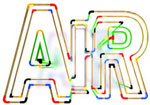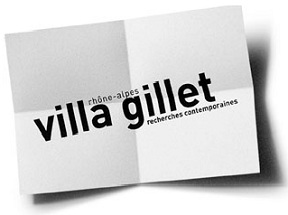Nick Flynn on the misfit and the outcast
![[title-image]1332154739447[/title-image] flynn-nick_1346072572753.jpg](https://cle.ens-lyon.fr/anglais/images/flynn-nick_1346072572753.jpg)
Les éditions Christian Bourgois publieront en novembre 2012 un recueil en français des textes écrits à l'occasion des assises du roman.
I wrote a memoir a few years ago (Another Bullshit Night in Suck City), which, in part, chronicled the five or six years my father spent living on the streets in Boston. I’d been a case-worker with the homeless for three years before he got himself evicted from his marginal living situation, ran out of options (he slept in his taxi, on friend’s couches) and eventually ended up at the shelter where I worked. I hadn’t grown up with him, I hadn’t met him, really, before he came into the shelter — that this is where I got to know him is in the Shakespearian realm of the unlikely coincidence that sets the play in motion (think Hamlet encountering his father’s ghost).
During the years he was homeless my father occupied the space of outcast, though he’d already been a misfit for years, simply by declaring himself a poet. He had also spent time in federal prison, for robbing banks — not like Bonnie and Clyde, he didn’t use a gun, he merely forged checks — a felony which limits your options even after you serve your time. It was, I believe, his alcoholism, which pushed him across the threshold and into that first bank, and then, a few years after he got out of prison, it was again alcohol which pushed him into the shelter.
It must be said that during the time my father was living on the streets and in shelters I was not so far from that life myself — I was living in an abandoned strip joint, which I rented from the mafia, and doing more than my share of drugging and drinking. And I was also beginning to call myself a poet.
Something I would like to discuss is the role of artist, which (at least in America), brands one as de facto outcast. The poet cannot serve those in power, the poet must attempt to name the unnamable, the poet exists outside the economic system. This past year can be called the rise of the outcast, from Arab Spring to the various manifestations of the Occupy movement around the world — is this the moment of the outcast rising up?
I would like to pause here and correct myself — my father was not homeless, but more accurately part of that growing subclass called “the working poor.” He worked every day when he was living on the streets, clinging to the (impossible) hope that our minimum wage would get him back on his feet (it didn’t). The terms we use are important.
It is perhaps strange — or telling — that an outcast would end up in two of America’s growth industries — the shelter system, and the prison complex. In America, at least for the past twenty-five years, there is a clear price for being an outcast — not mere banishment, not simple marginalization, but your body is forced into a brutal system. This seeming contradiction — why is the outcast forced into containment? My father did not function well in either the prison or the shelter — he is eccentric, he is grandiose, he is delusional — he insisted that he didn’t belong in either prison or the shelter, he never accepted either as his fate. And though my father is still difficult for me to deal with (his narcissism is seemingly boundless), I find something true about his refusal to fit into any of these brutal systems. Today I would like to simply discuss how the outcast is treated in our world, how they are contained, or punished, or broken — or, perhaps in some cultures, honored — and to speculate on why this might be, what this might serve.
My father moved from misfit to outcast, and then he came back — he got off the streets. But no one, perhaps, can return fully from that place of no-place. In the years after he got off the streets I would find him on a bench, in a park a few blocks from his apartment, and lead him back inside. Where is your key? I’d ask him.
Pour citer cette ressource :
Nick Flynn, Nick Flynn on the misfit and the outcast, La Clé des Langues [en ligne], Lyon, ENS de LYON/DGESCO (ISSN 2107-7029), août 2012. Consulté le 20/02/2026. URL: https://cle.ens-lyon.fr/anglais/litterature/entretiens-et-textes-inedits/nick-flynn-on-the-misfit-and-the-outcast



 Activer le mode zen
Activer le mode zen


